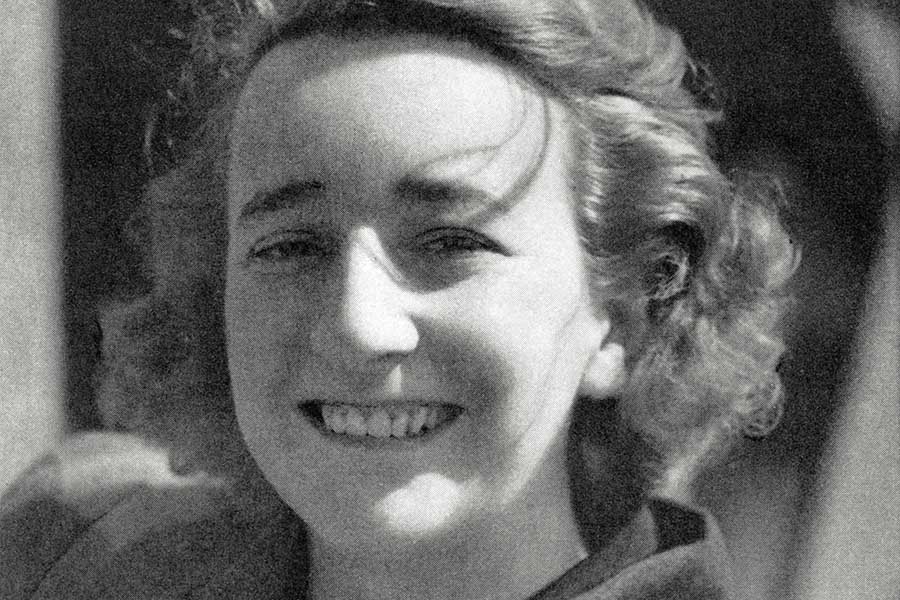Lillian Hellman aspired to be that rare thing, even in her time: a serious Broadway playwright. From the beginning she wanted to move beyond the domestic dramas typical of women in her day and write plays that spoke to prevailing issues of values and political life. And she wanted her words to reach Broadway audiences—popular audiences—who sought entertainment rather than education. These two seemingly irreconcilable goals explain both her spectacular success and her failure to achieve greatness.
The poor relative of a wealthy Southern family, she came of age in New York City in the 1920s, immersing herself in a literary culture that seemed to have no class or race boundaries. The Depression years of the ’30s provoked political engagement with labor issues and sparked the courageous examination of contemporary morality that suffuses her work. Goaded by her lover Dashiell Hammett, who was impatient with the trivial, Hellman addressed the deepest concerns of her moment: the fragility of human relationships, the power of the Big Lie, the force of greed, the painful distortions imposed by class and race relationships. She imagined herself a woman of stern integrity: a playwright who would speak truth to audiences who would pay attention because the magic of the theatre would draw them in.
But to attract audiences, she resorted to the kinds of tactics that could make critics shudder: the unlikely plot twist, the sharp-tongued and shrill character, and especially the melodramatic turn. Together these provided the spice that led to Broadway success but ultimately undermined her larger goals.

In Hellman’s best plays, the tactic worked beautifully. The Children’s Hour (1941), her first successful Broadway play, showed how easily idealism could be destroyed by a single malicious lie. That the lie concerned a purported lesbian relationship titillated prurient interest and ensured triumph. The Little Foxes (1939), arguably her most popular play (set for a starry revival on Broadway in April), turned on an avaricious wife who refused her husband the medicine that might have saved his life. In Hellman’s eyes, the play contrasted an old Southern society based on caring against an invasive capitalism that consisted of “people who eat the earth and eat all the people on it.” Audiences who absorbed that message also resonated to the malevolence—the sheer evil of a woman who got what she wanted in the end.
And in Watch on the Rhine, Hellman’s 1941 paean to the courageous resisters who opposed the Nazis in Europe, drew the attention of audiences that thrilled at the murder of a German diplomat in America. That melodramatic act made palatable the play’s ideological message. (A revival begins performances tonight at Arena Stage in Washington, D.C.)
When Hellman’s plays failed to adequately engage their audiences with a final gunshot or a plot twist, they often failed entirely. Days to Come (1936) falls into this category: Its lessons about unionization are too sternly offered, and its subordinate affair of the heart insufficiently developed. Even Another Part of the Forest (1946), the Little Foxes prequel which director Austin Pendleton believes to be one of Hellman’s great plays, falls short on the melodrama front, its convoluted end marred by an overheard telephone call and a manipulated disaster. Some critics who were onto Hellman’s tactics commented acerbically on these shortcomings, even if they shared her politics.
Perhaps the great ironic turn of Hellman’s career came with her effort to collaborate with Leonard Bernstein in an adaptation of Voltaire’s Candide (1956) as a musical for the stage. In her treatment, the young Candide searches the world to find a place where abundance vitiates greed, where kindness exists, and where people might love each other for their qualities of character rather than for their status or their material wealth. Together with John Latouche and Richard Wilbur, who wrote most of the lyrics for music that Bernstein composed, Hellman led Candide on a trip from one misfortune to another, only to discover that no benign world existed.

Hellman wanted to end her version by sending Candide home having learned that neither love nor harmony could exist in a fraught and angry world. But after an unsatisfactory first run, her collaborators, including Bernstein, disagreed. When they cut some of the more sober songs and added ebullient music, Hellman refused permission to mount the musical, and in the end cut her ties with it. Candide has gone on to become a staple in the repertoire of the New York City Opera, among other companies. It might well be described as a delightful romp. It bears scant traces of her adaptation, and Hellman’s name is no longer associated with it except as a footnote.
The Candide episode, coming as it did toward the end of Hellman’s playwriting career, perhaps tells us just how much Hellman valued her integrity after all. While she could and did resort to artifice to raise her voice above the competition, she insisted that her voice remain true to her principles. If she reached audiences with theatrical devices that stirred their imaginations, she never backed off her goal of writing plays designed to illuminate the issues and problems that troubled her world. When her ideas no longer resonated, she stopped writing plays, and turned instead to essays and memoirs, in which her ideas needed no improbable twists to come across.
Alice Kessler-Harris was the R. Gordon Hoxie Professor of American History at Columbia University and served as president of the Organization of American Historians.


